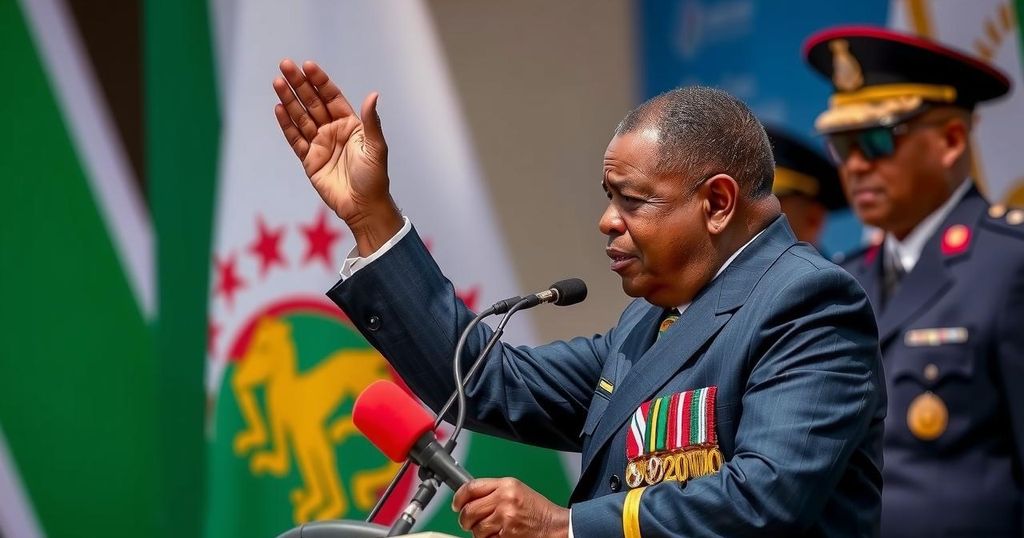Botswana’s New President Duma Boko Declares ‘New Dawn’ at Inauguration

Duma Boko was sworn in as Botswana’s new president, marking a significant political change following a landslide election victory against the long-dominant Botswana Democratic Party. He emphasized the start of a ‘new political dawn’ and outlined his commitment to addressing economic issues, particularly among the youth. The event attracted various international dignitaries, signifying Botswana’s influence on democratic movements in the region.
On Friday, Duma Boko was inaugurated as Botswana’s new president, marking a significant political shift in the nation after his decisive election victory that unseated the Botswana Democratic Party (BDP), which had been in power for nearly six decades. In his inaugural address at the national stadium, Boko proclaimed a “new political dawn,” expressing pride in the successful test of democracy that had taken place. His party, the Umbrella for Democratic Change (UDC), won a staggering 36 seats in parliament compared to just four for the conservative BDP. Boko, age 54, noted that this electoral shift reflected the Batswana people’s desire for transformative change after a prolonged period dominated by the BDP. The former president, Mokgweetsi Masisi, who acknowledged the electoral defeat, was also in attendance among other international dignitaries. Boko, addressing the crowd, acknowledged Masisi’s contribution to the democratic process, urging attendees to show respect towards the former president, despite the mixed reactions from the audience. Younger voters, constituting approximately one-third of the electorate, expressed a clear yearning for change, primarily urging robust action against unemployment and socio-economic disparities worsened by the decline in diamond sales. Boko’s UDC had campaigned on ambitious promises, including plans to create 500,000 jobs and construct 100,000 housing units within five years. He indicated that foremost among his priorities would be stabilizing relations within the diamond industry while seeking to diversify Botswana’s economic reliance. Notably, the inauguration attracted various international guests, including Zimbabwe’s opposition leader, Nelson Chamisa, who remarked that changes in Botswana instilled hope for similar transformations in countries governed by long-standing regimes. Chamisa articulated a vision for Africa’s future, advocating for progressive leadership that would elevate the continent globally. The voter turnout in Botswana was marked at an impressive 80%, showcasing the populace’s commitment to democracy and change.
Botswana, a country that has experienced a long-standing dominance by the BDP since gaining independence in 1966, recently witnessed an electoral upheaval as the UDC led by Duma Boko emerged victorious. The elections reflected a growing discontent among the populace, particularly the youth, regarding issues such as unemployment and economic management. Boko’s victory symbolizes a shift in political dynamics in Botswana, encouraging discussions about democratic governance and potential for reform in the region.
Duma Boko’s inauguration heralds a new political chapter in Botswana, characterized by a decisive electoral victory over a historically entrenched party. His administration is poised to address pressing socio-economic issues and fulfill ambitious reform goals aimed at revitalizing the economy. The international attention surrounding this leadership change may inspire similar movements elsewhere in Africa, interpreting Botswana’s experience as a motivating force for democratic progress and renewal.
Original Source: www.barrons.com







